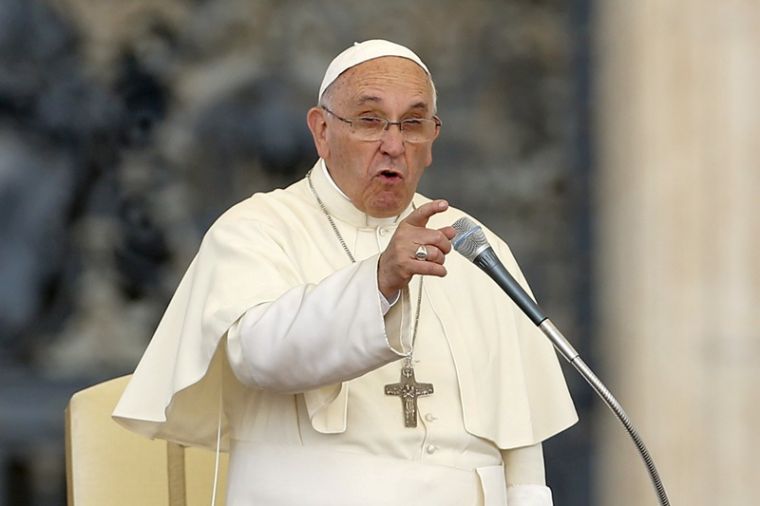Pope Francis assails 'attacks on human life' in new encyclical on environment

Pope Francis denounced abortion, embryonic experiment, and population control as attacks on human life in his new encyclical, emphasising that respect for nature and human life must go together.
The encyclical released on Thursday is titled "Laudato Si," meaning "Praise be to You," taken from St. Francis of Assisi's prayer "Canticle of the Sun." The said prayer gives adoration to God through Brother Sun, Sister Moon, and "sister Mother Earth," which are elements of creation, the Catholic News Agency reported.
The 184-page encyclical is also a critique on contentious scientific topics like climate change, pollution, and extinction.
Pope Francis said "a sense of deep communion with the rest of nature cannot be real if our hearts lack tenderness, compassion and concern for our fellow human beings."
"At times we see an obsession with denying any pre-eminence to the human person; more zeal is shown in protecting other species than in defending the dignity which all human beings share in equal measure."
The Pontiff explained that it is "clearly inconsistent" to fight against the trafficking of endangered species while being apathetic to human trafficking, to poverty, and the choice "to destroy another human being deemed unwanted."
This outlook "compromises the very meaning of our struggle for the sake of the environment."
For one, abortion is "incompatible" with concern for nature, he said.
"How can we genuinely teach the importance of concern for other vulnerable beings, however troublesome or inconvenient they may be, if we fail to protect a human embryo, even when its presence is uncomfortable and creates difficulties?" the Pope pointed out.
He also criticised population control, considered by some policy-makers as the solution to poverty, and unsustainable consumption of the world's resources.
"Instead of resolving the problems of the poor and thinking of how the world can be different, some can only propose a reduction in the birth rate," the Pope said.
Blaming a growing population for such problems instead of the "extreme and selective consumerism on the part of some, is one way of refusing to face the issues."
This, he said, "is an attempt to legitimise the present model of distribution, where a minority believes that it has the right to consume in a way which can never be universalised, since the planet could not even contain the waste products of such consumption."
The leader of the Roman Catholic Church decried the pressure international groups give to developing countries, as economic aid is made "contingent on certain policies of 'reproductive health.'"
Pope Francis also assailed the failure of some ecological movements who call for caps to be placed on environmental scientific research to also apply the same to human life.
There is "a tendency to justify transgressing all boundaries when experimentation is carried out on living human embryos," he explained, saying technology ends up considering any practice whatsoever as licit" when it throws away ethics.
"We forget that the inalienable worth of a human being transcends his or her degree of development."
"When we fail to acknowledge as part of reality the worth of a poor person, a human embryo, a person with disabilities—to offer just a few examples—it becomes difficult to hear the cry of nature itself; everything is connected."
The Pope also said it is important to accept and care for one's body, for it is through the body that one can relate to the creation.
He warned against having "absolute power" over our bodies as if they were something that we own, saying that "man too has a nature that he must respect and that he cannot manipulate at will."
Cardinal Peter Turkson, president of the Pontifical Council for Justice and Peace, said the encyclical's goal is to uphold the welfare of all creation.
The document seeks "to develop an integral ecology, which in its diverse dimensions comprehends 'our unique place as human beings in this world and our relationship to our surroundings," he said.
He also underlined the gravity of having an approach to ecology that connects care for the environment to care for the human being.
"You cannot believe in and love God without respecting or caring for what he has created, without caring for the work of his hands," Cardinal Turkson said, referring to the "work" of God to humans and nature.
"The two things we're talking about are so closely related, the one doesn't have sense without the other. The garden doesn't have sense without the man to be brought into the garden, and man doesn't make sense if he wasn't the one to till and keep the land."











